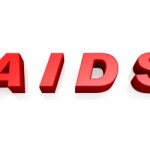AIDS fund gets $11.7 billion in pledges
The United States and other countries pledged $11.7 billion during a UN summit on Tuesday for a global fund to fight AIDS, malaria, and tuberculosis.
A pledge of $4 billion was made by the U.S., the single biggest donor country to the Global Fund, which was started in 2002 to help decrease mortality rates of the three dreaded diseases around the world.
American delegates urged emerging countries like China to also give generous aid.
While the U.S. gave the biggest contribution, it also called for reforms in the program like better coordination of government and civil society efforts to ensure that the funds are used more effectively.
The total amount of pledges exceeded the $9.7 billion pledged at the last conference in 2007 held in Berlin, but still fell short of how much the organizers were expecting at this conference.
There are two implications because of the shortfall. One is that the progress of AIDS programs of poor countries will slow down. Another result would be a harder and longer time to achieve some of the program’s most ambitious goals such as eliminating HIV mother-to-child transmission cases.
“Since the total pledged is indeed below what we had hoped for, the scaling up will slow down compared to what we were hoping for,” said Michel Kazatchkine, the executive director of the Global Fund, at a press conference in New York.
But Kazatchkine said he is still optimistic that the fund would reach its objective of bringing down mother-to-child HIV transmission rates. “If our effort is well-coordinated, we should be able to reach that goal by 2015.”
